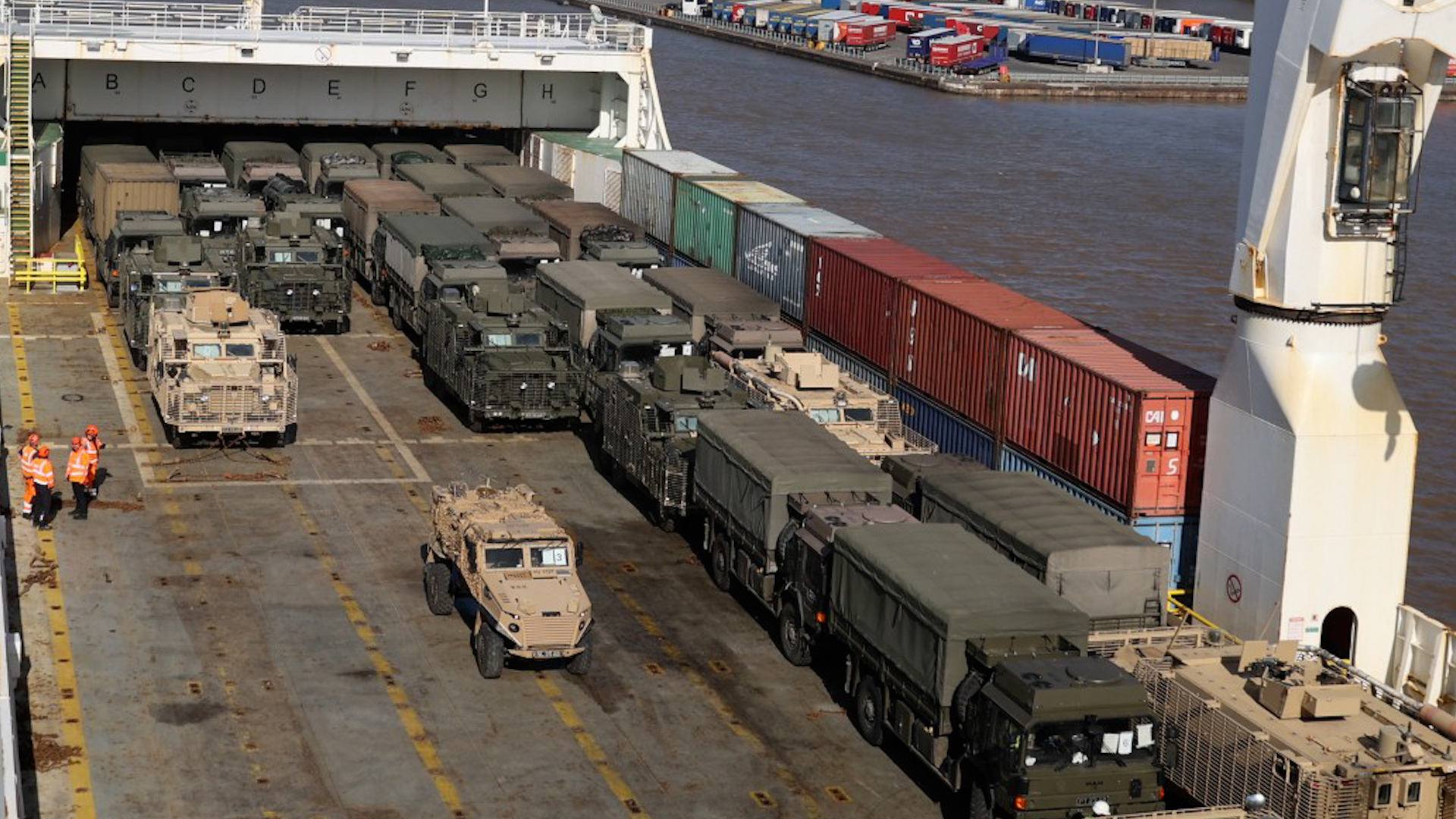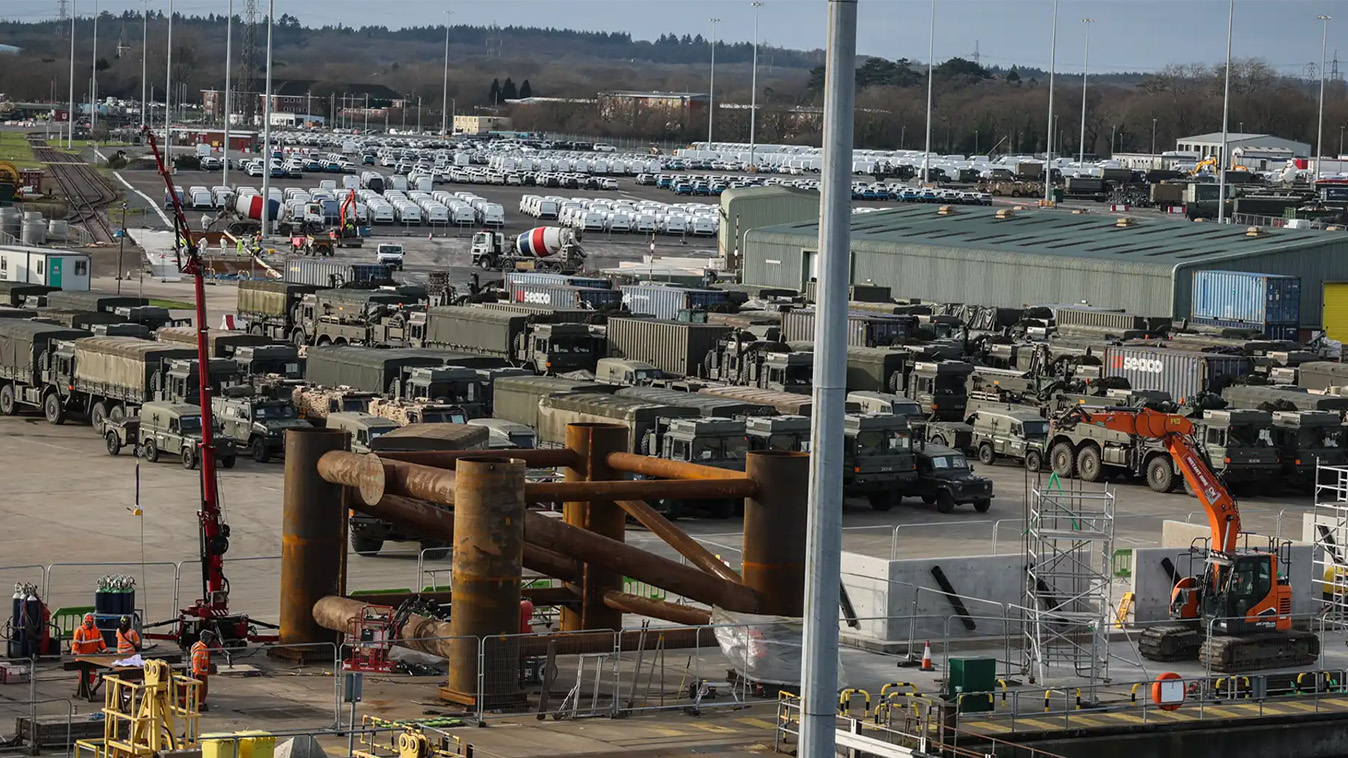
British Army using new port alliance to return from largest Nato exercise so far

Hundreds of military vehicles and pieces of equipment are returning from Exercise Steadfast Dart, the largest Nato deployment so far this year.
The exercise saw the Army successfully practise the deployment of the new Allied Reaction Force (ARF), which can rapidly reinforce Nato's eastern flank.
Armed Forces Minister Luke Pollard said the UK's involvement has proved its capability to respond swiftly and on a large scale.
"The success of Exercise Steadfast Dart demonstrates the strength of Nato's collective defence and the UK’s unwavering commitment to the alliance," he said.
"The ability to deploy and recover our forces more efficiently is a game-changer, ensuring we remain ready to deter and respond to threats at pace and continue to make Britain secure at home and strong abroad for decades to come."
Exercise Steadfast Dart marked the first major deployment of the ARF as Nato forces test their ability to scramble their capabilities across sea, air and land.
The exercise comes as armed forces worldwide study the war in Ukraine, adapting to lessons in modern conflict – from fast air operations and special forces tactics to trench warfare in sub-zero conditions.
The training took place just 16 miles from Ukraine's border, in a region shaped by the ongoing war.
With 10,000 multinational personnel deployed at short notice, the ARF serves as the tip of the spear, capable of reinforcing up to 300,000 troops if required.
7 Light Mechanised Brigade Combat Team will arrive back in the country through the port of Immingham – located on the east coast in northeast Lincolnshire.
It's part of a new agreement between the British Army and Associated British Ports (ABP) which will allow the Armed Forces to use multiple ports across the country.
Previously, the Army was only able to use the Sea Mounting Centre at Marchwood, located on the western shore of Southampton Water, directly across from the Port of Southampton.
It will be the first operational use of the new strategic agreement – which is aimed to enhance flexibility in deploying and bringing home military assets.
The new approach delivers significant strategic advantages, reducing transit times, improving efficiency, and will enable a faster and more sustainable military response in support of Nato operations.

It also means there is no longer a single port through which the UK's military machine passes, reducing the risk of it being a single point of failure.
The deal is in addition to the £100m investment in Marchwood’s infrastructure, which includes the creation of more operating space within the port and improvement of its jetties to allow for some of the world's largest car transporting vessels to dock.
Major General Jo Chestnutt, the Field Army's Deputy Chief of Staff and co-signatory to the agreement, said: "This new landmark strategic relationship with ABP is the exemplar of what MOD and industry can achieve.
"Working together, we have increased access to the full port network across Britain, increasing the resilience and capacity of the MOD's Sea Mounting capabilities, both in routine and in support of operations overseas."
The government says ABP and Ex Steadfast Dart are examples of ensuring the UK's security at home and strength abroad.









